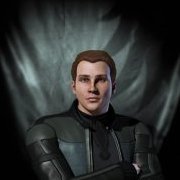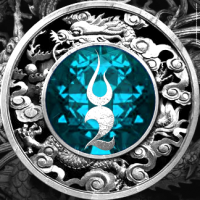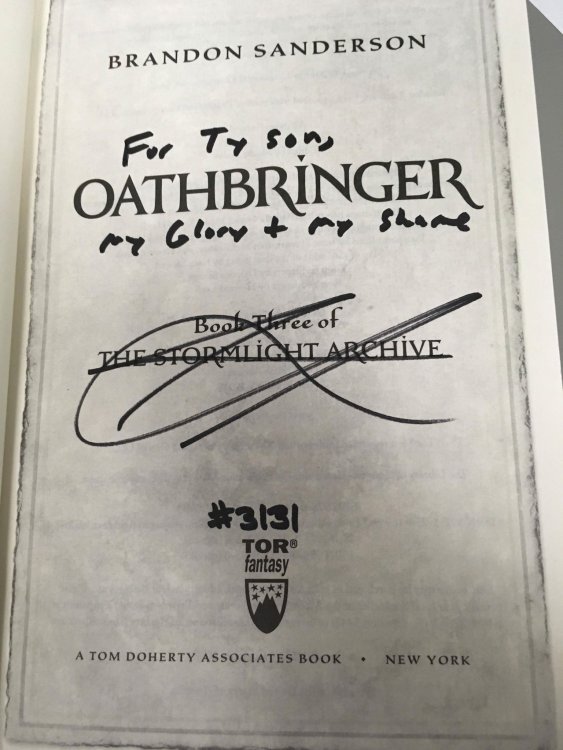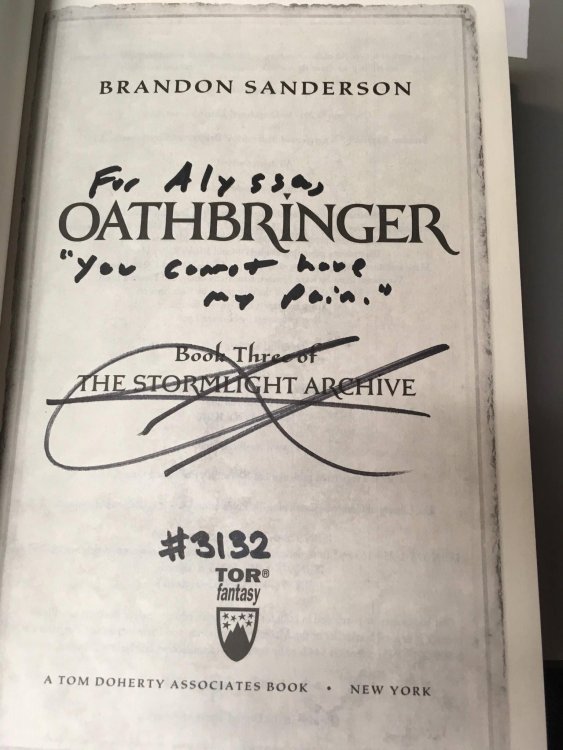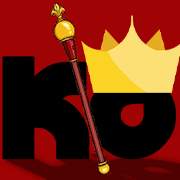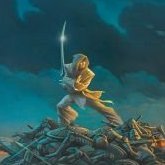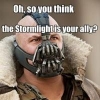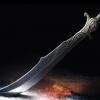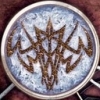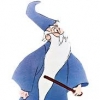Search the Community
Showing results for tags 'ideals'.
-
Do we know for certain which level of Radiant Dalinar is by the end of Oathbringer? Ever since I read it, I've been under the impression that he's currently of the third ideal (assuming that he didn't skip straight to the fifth with his 'I am Unity' proclamation), but someone on the Stormlight Archive Facebook group recently claimed that there was a Word of Brandon in which he said that in fact Dalinar is only a level two by the end of Oathbringer, but the WoB in question was only a paraphrase. Is anyone who knows the WoBs better than me able to clarify this?
-
I believe I'm the first one to notice this, if not, please link me to the apprioprite thread. I recently noticed that the First Ideal can easily be reversed to uncover a second, complementary meaning. We basically reverse both the words and their order, so from life before death, strength before weakness, journey before destination we get destination after journey, weakness after strength, death after life. While this sound a little bit awkward in English, it also carries deep meaning, at least to me. Destination after journey After our journey we always reach a destination, or at least strive to do so. Our actions have a purpose. Wandering aimlessly is pointless. We choose our general goals with our oaths, but to fullfill them many particular quests need to be done. We should not only talk about our ideals and mission, not only act like we're doing something, but take actions that will lead to a measurable gain. For example, a Windrunner tasked with watching over the town should not only patrol the streets (which improves safety, of course, but rather temporarily), but also do something that is far less enjoyable and convenient, yet probably more important, such as spending many nights lying in a wet den to spy on a dangerous gang and finally destroy it. We also don't stop midway - we are persistent. If only possible, we continue the journey until we reach the destination. Things need not only to be started, but also finished. Young zeal is appealing, but even the most loved activity will tire us and require a measure of perseverance. Thus, it is hard not to stop after some time, yet we must not. For example, in times of sorrow, a Lightweaver decides to paint a town hall for the enjoyment of all people. She takes to it with with eagerness, but halfway through the job becomes tedious. She wishes to go play at a theater, which would also make some citizens happy. Yet she should finish the painting, while taking at most short breaks when she is really more needed somewhere else. The painting will, after all, lighten people's moods for centuries, while an unfinished one could even make them sadder. [spoiler] The most important step a man can take. It's not the first one, is it? It's the next one. Always the next step, Dalinar. [/spoiler] Weakness after strength After showing our strength, we have the right to rest. Even the sturdiest shield has to be oiled, lest it rusts and breaks. We must not push ourselves too hard, even if resting seems lazy. Of course that does not allow true laziness, but we're only humans. It's better to take a break from battle than to fall because of fatigue. This also applies to mental fatigue. We don't play tough after facing death or other horrors. It is right to seek support if you need it. We never try to seem stronger than we really are - that always ends up worse. We are not ashamed to seek help. We also understand that others are humans, too. While it is right to encourage and expect others to do their best, we remember that they also have the right to both rest and fail. Don't swing a sword too hard, lest it breaks. Death after life This part was the hardest to interpret. First of all, it is basically memento mori. We need to remember we are not immortal, no matter how grand are our powers. No other earthly thing is eternal, either. Due to that, we need to think in the long term. Back to that Windrunner protecting a town - even if it's his lifelong duty, he has to realise that one day he will be gone. So he should not only protect the town as best as he can, he should at least make sure to find a replacement. And it would be best if he estabilished an efficient guard that would keep the town safe for generations. The same goes for the Lightweaver's painting. This also means that since we have to die one day, we should sacrifice our life for our ideals if it is needed (however we must do it wisely - see the first part). Also we shouldn't attach ourselves to impemanent things too much, as they will eventually turn to dust, while our ideals may guide the whole humanity to a better path. What do you think about this interpretation?
-
I tried to make it so the post's title isn't an Oathbringer spoiler in and of itself, but after re-reading Oathbringer after giving it a few months to settle in the back of my mind, I appreciated several things much more than I did the first time (which was partly due to reading the preview chapters as they were released, something I feel disrupted the feel of the pace of events for me, and partly due to my overwhelming desire to Get To The Plot Advancement Stuff ASAP). I could make a list of things like that - such as my much better appreciation of how plausible it was that Shallan's mind was cracking in the way that it did, when the first read-through it felt much more awkward - but the biggest swing, oddly enough, was in my appreciation of the scene where Lopen swears the Second Ideal. The first time through, I read it as straight comic relief, because, well, it was Lopen. The Lopen. He was mugging for some injured soldiers, doing tricks with one arm (even though he now has two), and talks a bit about becoming a Radiant, and mentions that he'd been "trying to cry a lot, and moan about my life being so terrible, but I think the Stormfather knows I'm lying", to "crack" his soul more, when he casually speaks the Words of the Second Ideal - obviously not for the first time, since he screams at the SF about "Why didn't you listen earlier?!"... And has his Words accepted, with the burst of light, the frost-drawn Windrunner symbol, and everything. He is literally hopping mad, making a double-handed obscene gesture to the sky, and Rua, his spren, joins him in support (who even grows two extra arms to double-double on the gesture). It is a funny scene, to be sure. But.. It's also really touching. Because while it's funny to us, the reader, it wasn't a joke to the Stormfather. YOU WEREN'T QUITE READY. I remember laughing out loud the first time I read that, like it was a punch line. But the second time, on a re-read, I teared up a little. Because it's not like the Stormfather has a sense of humor, and was pranking Lopen or something. He was - can only be - dead serious. In the midst of the epic battle for Thaylen City, with Fused, Thunderclasts, Voidbringers parshmen singers, red-eyed humans, and even Odium himself making an appearance, Lopen had been desperately reaching for the Second Ideal, and drawing a blank. Because he really wasn't ready! He was grasping towards being like Kaladin was when he rescued Dalinar from his entrapment at the end of The Way of Kings, and "leveled up" in one of the most dramatic ways possible. But the Ideals are, like we saw in Teft's interpretation of the Third Ideal, tailored to the Radiant who swears them. And that's not who Lopen is. That's not his metier. Only now, in giving comfort, hope, and morale to injured soldiers who'd lost limbs, with his unique blend of self-deprecating and insulting humor, is he living, and not just speaking, the Second Ideal. Lopen has always been about being an indomitable source of humor, light, and hope - even as a one-armed bridgeman, a death sentence with a handicap - his high spirits and antics raised even those of Kaladin. Bringing that light to those wrapping themselves in darkness - that's who Lopen is. I will protect those who cannot protect themselves... From depression, from despair, from giving up. Thank you for what you do, Lopen. I look forward to seeing what your Third Ideal will be like.
- 1 reply
-
16
-
- ideals
- windrunner
-
(and 1 more)
Tagged with:
-
Do we have an official list for what ideal each of the Knights Radiant have sworn? Also, do different powers come with each ideal sworn? I remember that Jasnah implies to Shallan that she has Plate, meanwhile Shallan does not.
-
Hey Everyone! I had to join the forum for this one specific purpose. What do you think the essence of the Bondsmith ideals are? Like the actual meaning of the oath that helps define what they will swear as their own oath? We know from the Windrunner oaths that they are similar but not quite the same. Almost like they are personal to each person but have an "Ideal" behind them. Hence calling them an Ideal. So what about the bondsmith oaths that Dalinar has already swore. "I will unite instead of divide. I will bring men together." -This almost feels straight forward that it is about bonding. Bringing things together and being solid in your ideals and position. But i could be wrong. "I will take responsibility for what I have done. If I must fall, I will rise each time a better man." -I wanted to say Progression. Improvement. Or even Repentant. Accepting responsibility and becoming better indicates a need to continuously improve. Recognizing that you make mistakes and move forward. So what are you thoughts on this? I would love to understand what the essence of the bondsmith oaths are.
-
So I dunno I was just thinking about it because it's been bothering me. It was a really nice curveball from Brandon, because we all kind of assumed he was going to say it. Then he didn't. I think we have enough information on screen to eek out the fourth ideal. I don't think it's about protecting. I think it's about killing. "I can't lose him, but.....oh, Almighty...I can't save him." "I will kill the ones that......" or "I will kill those who endanger humanity" or even like Szeth "I will lead for Dalinar Kholin" - If he said that and he is sure Dalinar is about to turn the dial up to evil 11, he just can't do it. He couldn't say the words because he knew if he did he would presumably have to kill Dalinar, and he couldn't do it. In part one Kaladin and Syl have a conversation about morality and who is right and who is wrong. The Fourth Ideal I believe for windrunners has to do with choosing a side. Just like Szeth's third ideal. Kaladin can't choose. Just like the windrunner crystal. They first 3 ideals have to do with protecting, and they have to know all the parshendi aren't bad.
-
Hello everyone. As I said in another thread, I have my doubts regarding the moment when Dalinar said the oath and opened the perpendicularity. On rereading I became even more certain that the oath is not "I will take responsibility..." but "I AM UNITY", and that is not the 3rd ideal, but the 5th. So I share with you the quote (compilation of Dalinar´s POV on that moment). This is the moment Dalinar says the Words, and the moment the Stormfather accepts them. This from Nin and the Skybrakers What do you think?
-
So, just got back from the release! So hype! But, to the point. I got two books, one for me and one for a friend, and I asked for new oaths we haven't heard yet. "My Glory and my Shame" - this one seems strange, could just be a nice quote. "You cannot have my pain" - possibly seems more legit. There was a ton of people, and it was late, so maybe these aren't what I asked for, but maybe. just something cool I guess.
- 29 replies
-
2
-
"Speak again the ancient oaths..." Easier said than done, Your Almighty-ness. The Ideals of the Knights Radiant are one of the most fascinating and essential aspects of Surgebinding, yet with only a fifth of the Stormlight Archive published, we still don't have information about many of the oaths. The First Ideal is the same for all orders, and at least one order didn't even speak any oaths after the first. Clearly there is a wide range of speculation to be had. As I've seen a great deal of discussion about Ideals, I thought it would be convenient to have a place we can discuss our guesses at length. A place to enter guesses about what oaths an Order might swear, or possibly details on how the Ideals function at their core. Myself, I am currently espousing two possible oaths. WoR spoilers follow: Those are my ideas. I would really like to know what other people think of these potential Ideals, and I would love to see other suggestions for the Dustbringers, Skybreakers, and the other Orders! It's time to speak again the ancient oaths, people!
-
I have been thinking about this myself a lot lately so I wanna see what everyone else thinks. What are the Orders that everyone is most interested in, likes, or anticipates learning about the most? Feel free to discuss why and even bring up more than one if you'd like! 1. Windrunners 2. Skybreakers 3. Dustbringers 4. Edgedancers 5. Truthwatchers 6. Lightweavers 7. Elsecallers 8. Willshapers 9. Stonewards 10. Bondsmiths I am personally very interested in the Stonewards the more I looking into all the theories surrounding stones, the Shin Stone Shamans, Talenel'Elin, the Ancient of Stones, the Thunderclasts, Stones Unhallowed, etc. I even saw that Brandon had signed someone's book with a rough conceptualization of an untold ideal which was, "I will stand when others fall." That sounds very Stoneward-esque to me considering that they were supposed to be as steadfast as Taln, as well as their focus on strength. I also believe they are the one Order that did not betray their spren during the Recreance. Let me know what you all think!
- 26 replies
-
- stormlight archive
- knights radiant
-
(and 2 more)
Tagged with:
-
So I was recently able to talk to Brandon at the Ogden Signing. Recently before that I started looking at this table (The one that should be above this) and the first category really interested me, specifically the forth, and sixth columns. Inhalation, and Protecting/Leading. To me the Protecting/Leading sounded a lot like Kaladin, and his connection to Syl. his oath's are all about protecting: I will protect those who cannot protect themselves. —The Second Ideal of the Windrunners I will protect even those I hate, so long as it is right. — The Third Ideal of the Windrunners And he was also a MAJOR leader of Bridge four, he is the reason that they are now free. Jump down to the next line, Just. We know that SkyBreakers use one of the same surges as Kaladin does, Gravitation, and also the surge of Division. They also fall the law to the letter, aka being just. ( based on or behaving according to what is morally right and fair.) If you look at a list then you will see that the SkyBreakers would use the second set of possible surges on the list (seen below) and the Windrunners use the first set possible, lining them up, if you place them on a chart, directly underneath each other. 1.Adhesion 2.Gravitation 3.Division 4.Abrasion 5.Progression 6.Illumination 7.Transformation 8.Transportation 9.Cohesion 10.Tension K so now skip down to where Shallan would be on the list...she would be the sixth (having access to the sixth, and seventh surges listed) Sixth one down on the chart, Creativity/honest. Hmm...sounds like her. Next one down, Transformation/Transportation, Wise/Careful, sound like Jasnah to you? So this gives us a base for what each of the orders of the Knights Radiant will be based upon, and also lets us know that Dalinar will be based on being Pious( devoutly religious.) which makes sense, being bonded to a God-spren. When I talked to Brandon about this he did say that these all matched up exactly, and that this did work, and also said something about Creativity being a form of lying for Shallan. Now to that other column I mentioned, the fourth one. I have no base for this, except what I see, but I do not know what Brandon has to say about it, as I can up with it shortly after talking to him. So Kaladin's body focus is Inhalation, according to the chart, I haven't had time to check this yet, but whenever Kaladin breathes in Stormlight it specifically says that he Inhales it, yet when Dalinar gets his stormlight at the end of WoR it says that he sucked in stormlight...This might be nothing but... Also when Shallan first soulcast is it a coincidence that the thing turned to Blood? Her body focus, is after all, blood. What do you guys think? Let me know.
- 13 replies
-
- stormlight
- knights radiant
-
(and 1 more)
Tagged with:
-
One thing that struck me recently was the difference between Kaladin swearing the First and Second Ideals and Dalinar swearing the First. In Kaladin's case, he is described as "explod[ing] with Light." The exact terminology and emphasis is used for both Ideals, in both books. In Dalinar's case, nothing. Why the difference? And what exactly is going on with Kaladin anyway? Let's talk about the second question first: what is going on with Kaladin, anyway? From the books, there are a couple of different explanations: 1) Kaladin is sucking up all the ambient Stormlight, thus exploding with Light. 2) Kaladin is getting a boost solely from swearing the oath, and would have exploded with Light even if there hadn't been any Stormlight around to suck up. I'm not sure we have the information to decide between the two proposals. In the first book, we don't get a close-up view of what's going on with the gems in the Parshendi's beards at the time. In the second book, all the lanterns in the hallway go dark, which supports the first explanation; but then, "For a moment, they stood in darkness", which doesn't exactly match how we've seen Radiants suck light out of gemstones earlier, where they literally inhale the light. It's also worth noticing that the draining of the lamps and the exploding with light don't happen immediately after swearing the oath, but rather after Syl forms a Shardblade in his hand. So maybe something else is going on instead, though it's still obviously related to swearing the Ideals. Anyway, that's Kaladin. But Dalinar's case is very different. Why? 1) Windrunners are special, and get the boost while other orders don't. 2) Bondsmiths are special, and don't get the boost while other orders do (much like Shardblades). 3) Situation is important: Kaladin had a need for Stormlight when he swore his Ideals; Dalinar didn't. Now this might be another case where we don't have enough information to fully decide, but maybe we do, at least somewhat. For instance, Jasnah and Shallan have each progressed at least to the Shardblade level, and though we don't see the progression ourselves, we can somewhat infer by its lack of mention, even in retrospect, that either they didn't get the Stormlight boost or they got it when few people were around to see. Ditto for Renarin, if he's progressed as far as the First Ideal yet. This seems to weigh somewhat against explanation 2). Any ideas? I have a somewhat crazy idea somewhat in favor of situation 1), but it's mostly based on me really, really wanting there to be ten Radiant oaths and grasping at any straws I can to make it fit, so I think I'll reserve it for now. I'm interested to see if anyone has any evidence or arguments for or against any of these cases, though, or any new explanations that I may have overlooked.
- 18 replies
-
1
-
- windrunners
- bondsmiths
-
(and 1 more)
Tagged with:
-
During the Nuremberg Trials, Nazi officials attempted to justify the actions they had performed during the Third Reich's reign by arguing that they were "just following orders"--claiming, essentially, that the law of their country absolved them of any moral responsibility for their actions. The Allied court did not recognize these objections, and declared that there is such thing as a "higher law" that all earthly governments must conform to. For more information about the concept of higher law, Wikipedia has an article on the subject. The subjective nature of law is a matter that could be discussed at length for days on end. Which is more important--following the laws of nations or the laws of ethics? Fortunately for those of us with limited time, this is not the question I seek to investigate in this thread. Rather, I'd like to explore what is perceived as a major point of distinction between two Orders of the Knights Radiant, the Windrunners and the Skybreakers. Syl, a spren associated with the Windrunners, differentiates herself from highspren by stating her belief that "laws don't matter. What's right is what matters." It seems that the majority of 17th Sharders have taken her viewpoint on the matter, citing the actions of the Skybreaker Herald Nale as an argument against Skybreaker ideology. I would argue that Nale is not a fitting representative of what the Skybreakers truly believe in. In Words of Radiance, Nale is observed tracking and killing Surgebinders whom he's found guilty of crimes. He deems this necessary, and tells off one of his minions when the man claims to be above the law. As any who have read Lift's interlude can attest to, Nale believes killing Surgebinders to be necessary for saving the world from horrible Desolations. But even believing that what he does is for the greater good, he still refuses to break the law by killing Lift after she is pardoned. Many readers, myself included, find Nale to be a difficult figure to relate to. He believes what he does is morally right, and yet he will cease his activities once the law opposes him? At best this is a highly extremist form of legalism. At worst, this is insanity. With this said, I believe that Nale, despite being the Order's patron Herald, is a poor representative of the Skybreakers and their specific belief system. If this is the case, then we must examine the only other representative currently available to us--Szeth-son-son-Vallano, Truthless of Shinovar. Nale's example leads us to believe that to the Skybreakers, the precise letter of the law is the most important consideration in any ethical conflict. Nale makes no secret of his belief that one should always obey the laws of a nation if one is within its borders. But when we observe Szeth, we find an entirely different principle at work--Szeth follows only the law that he recognizes. It is obvious that many of Szeth's activities, in particular his actions as the Assassin in White, are not legal within the borders of the countries he acts in. Alethi and Jah Keved law certainly prohibit the murder of kings and highprinces, but Szeth nonetheless executes his orders with extreme prejudice. Szeth is quite probably Roshar's Most Wanted, yet he is wholly devoted to the laws of his people, the Shin. Clearly the Skybreaker oath, "I will hold the law above all else", does not refer to all laws. Instead, it appears that the Second Ideal of the Skybreakers may refer to a specific set of laws--those laws that the individual Skybreaker chooses to uphold. So if this is the case, allow me to return to my original point. The Allied officials at Nuremberg believed in a higher set of laws than the laws of nations. They professed the belief in an ethical law that superceded all other statutes. Could a man who harbors these beliefs become a Skybreaker? Could a man, while swearing to hold the law above all else, break laws that he finds unjust, professing to follow a higher set of laws? Could a Skybreaker topple governments he finds reprehensible, freeing prisoners he believes were convicted wrongly? The core question, the question that must shape our judgement of the Skybreakers: do the Skybreakers swear to uphold all laws, or only those that are Just? I find this to be an interesting, perhaps even important, consideration. If Skybreakers are permitted to follow any set of laws they choose, then one could see the apparent contradiction of anarchist Skybreakers--Skybreakers who refuse to follow laws set down by men, considering ethical laws to reign supreme in all matters. At that point, who could tell the difference between a Windrunner and a Skybreaker? I suspect that the Third and Fourth Ideals will be key towards identifying the Skybreaker's philosophical stance, one way or another. If the Third Ideal is "I will follow even laws I find unjust, so long as they are lawful", for instance, then the idea of anarchist Skybreakers is entirely thrown out the window. But until we are given more definitive information, I would love to see some discussion on how Skybreakers and their spren interpret the law.
- 15 replies
-
3
-
As I mentioned in one of my theory threads in the Cosmere Theories forum, I think I may have found the inspiration behind the table of Essences. It may be the 16th century book Blazon of Gentrie by Sir John Ferne. The book associates the nine heraldic tinctures (the colors used in heraldry) with various things that were relevant to the astrologers of the time, including gemstones, virtues, numbers, classical Elements, the months of the year, etc. You can read various excerpts here (just search for "Blazon of Gentrie"). Sounds familiar? Yeah, these very same things are also associated with the Heralds of the Almighty, with a few major differences. For example, ten is the numerologically significant number on Roshar, not nine. Also, the four classical elements of antiquity are replaced by the ten Essences. There are other differences, but I believe that the similarities are striking enough that a connection here seems likely. On the other hand, these kinds of astrological associations have been done by other heraldists before Ferne, so it's possible that Brandon got the idea from somewhere else. There is, however, another connection between the Stormlight Archives and the Blazon of Gentrie. Ferne, being a knight, was well aware that knighthood wasn't supposed to be just parading around in jousting competitions wearing heraldic symbols and poking other knights with sharp sticks. Knights were supposed to uphold chivalric codes of conduct, and part of Blazon of Gentrie was dedicated to the virtues of chivalry, of which there were nine: Others have made different formulations of the chivalric code of medieval knights (look here for Gautier's), but the particular way that Ferne worded his version reminded me a lot about the Ideals of the Knights Radiant (just change "He shall" to "I will"). What do you guys think? Did I stumble upon something relevant, or is this all just a coincidence?
-
My very first Theory! After reading that WoB about an unpublished KR Ideal: "I will stand when others fall," I had an idea for a new one: "I will guide/be a light for those in the darkness." I think this one would be good for whichever order is the pious/guiding one. Thoughts, suggestions, or thrown tomatoes?
- 11 replies
-
2
-
- knights radiant
- ideals
-
(and 1 more)
Tagged with:
-
OK, tell me if this sounds crazy. There are two kinds of spren, nature and emotion. or (natural forces and concepts) Forces of nature spren are of Cultivation? and emotion/concepts are of Honor? Each Herald get's their abilities from a bond to Honor and each represents an ideal. (a concept) Each ideal granted the Herald two Surges divided up between spiritual and cognitive surges. Four got access to two spiritual surges, Four got access to two cognitive surges, and two got access to one of each. Spren were attracted to each ideal and because each ideal was a bond to Honor the spren "fed" of that bond and achieved sentience by becoming Splinters. These spren, that now each represented an ideal, started to bond with humans giving them surgebinding abilities like the Heralds whose ideal/Order they represent. (Surprising the Almighty) This would suggest that the power of Surgebinding comes from Honor. So what about Cultivation? Well I think her magic system is Voidbinding. (Binding spren that represent natural forces) I don't think that the spren involved in Voidbinding are Splinters, but I suppose they could be, but for now I'm going to assume they're not. So while Surgebinding involves sentient spren who make the decision to bond to a human who represents their ideal. I think Voidbinding works by binding a non-sentient spren that represents a force of nature to them (like stormspren) giving them abilities. =============================== OR The ideals the Herald swore bound them to both Honor and Cultivation (and the Herald's surge abilities, depending upon the Herald, are either of Honor, Cultivation or a mix of both) giving the spren that were attracted to that ideal access to the power of both Shards, becoming Splinters that way. Which would mean that Voidbinding is something else entirely. =============================== This is just something that I started to think about while reading Brandon Q&A's and I thought I share it to see what you guys think. So tell me what you think, feel free to added to it or tear it apart.
- 15 replies
-
- surgebinding
- voidbinding
-
(and 5 more)
Tagged with:
-
This is something that has been bothering me for a long time, and with Words of Radiance out, my... not concern, but quandary, let's say, has only grown. Specifically, I wonder how exact the Immortal Words, the Radiants' Ideals, have to be. The First Ideal, "Life before death. Strength before weakness. Journey before destination." sounds pretty solid, and I can't imagine it morphing into anything, even if it's related. But the others? Considering that at least one Order doesn't have set-in-stone rules (the Lightweavers who must speak Truths, not Ideals), is it wise to treat all of them the same way? Kaladin's Windrunner Ideals and Lift's "I will remember those who have been forgotten." could maybe work for all the members of their Orders, but Dalinar's? Shallan's? Lastly, there is the issue of the Stormfather officially accepting Kaladin's and Dalinar's Second Ideals. Does he get input with the Orders whose spren are closer to Honor than to Cultivation? Does he even have a choice on the matter - can he deny a Radiant's upgrade even if he or she speaks the correct Words? And if so, we loop back around - are there specific Words each (or at least some) Order must speak, or are they tailored individually? So let's take a stab at this. How do you think this will work? Do all of the Ideals offer some flexibility, or are there some that are set-in-stone, and some that are left to the Radiant's personality flaws?
- 18 replies
-
1
-
I need your help with something I’ve been wondering about. I’m probably just overlooking things. Anyway, here goes. So.. Syl more or less died when Kaladin went back on his ideals and seemed to regress instead of progress. What it took to bring her back seems to have the been his remembering and believing his already spoken ideals and formulating the next one - and even that almost wasn’t enough. Now on to Pattern. At some point in her early childhood, Shallan bonded him, which means she formulated the first ideal, otherwise she wouldn’t have been able to use him to kill her mother. As we now know, Shallan shut down after that. Lied to herself so intensely, that she completely denied Pattern and her powers. She even went on to kill her father. Denying everything should lead to the same outcome as Kaladins case: Almost killing her Spren. In WoK, Shallan got in touch with her powers and her Spren again by speaking a truth. A truth, but not the truth that lead her to deny Pattern. Yet at the beginning of WoR, we see Pattern gaining consciousness (actually re-gaining it). It’s not until the end of the book that Shallan speaks the truth that actually mattered more, stops denying what happened and remembers the once spoken ideal. At that point, however, Pattern has already long been happily flopping around. So.. there actually seem to be different requirements for killing and saving a Spren from the brink of death. Or am I missing something?
-
When Kaldin spoke the Words, "I will protect those who cannot protect themselves," we rose to our feet and roared with excitement! When Lift spoke "I will remember those who have been forgotten," we shed tears and begged for more! Speaking the Ideals of the Knights Radiant have become some of my favorite moments in modern literature. I can't wait to see more Ideals! And so, dear friends, this poll. Who do you think will get to have their shining moment next? And please, drop a post to let us know why you chose them, how it might happen, and what the words might be!
-
I was reading another topic and it was mentioned Kaladin reciting the Third Ideal during his battle with Szeth. So the thought is do you think that WoR will have the Third Ideal recited? And with no information on what the Third Ideal actually is, what situation would you like to see Kaladin in where is brought to do so? I think it would be cool to see the Third Ideal have something to do with Kaladin's relationship with Amaram. Like "I will protect those who are idiot jerks and deserve to tarred and feathered and then driven out of town" or something similar.There is a lot of potential for him to grow into his Radianhood with this.

